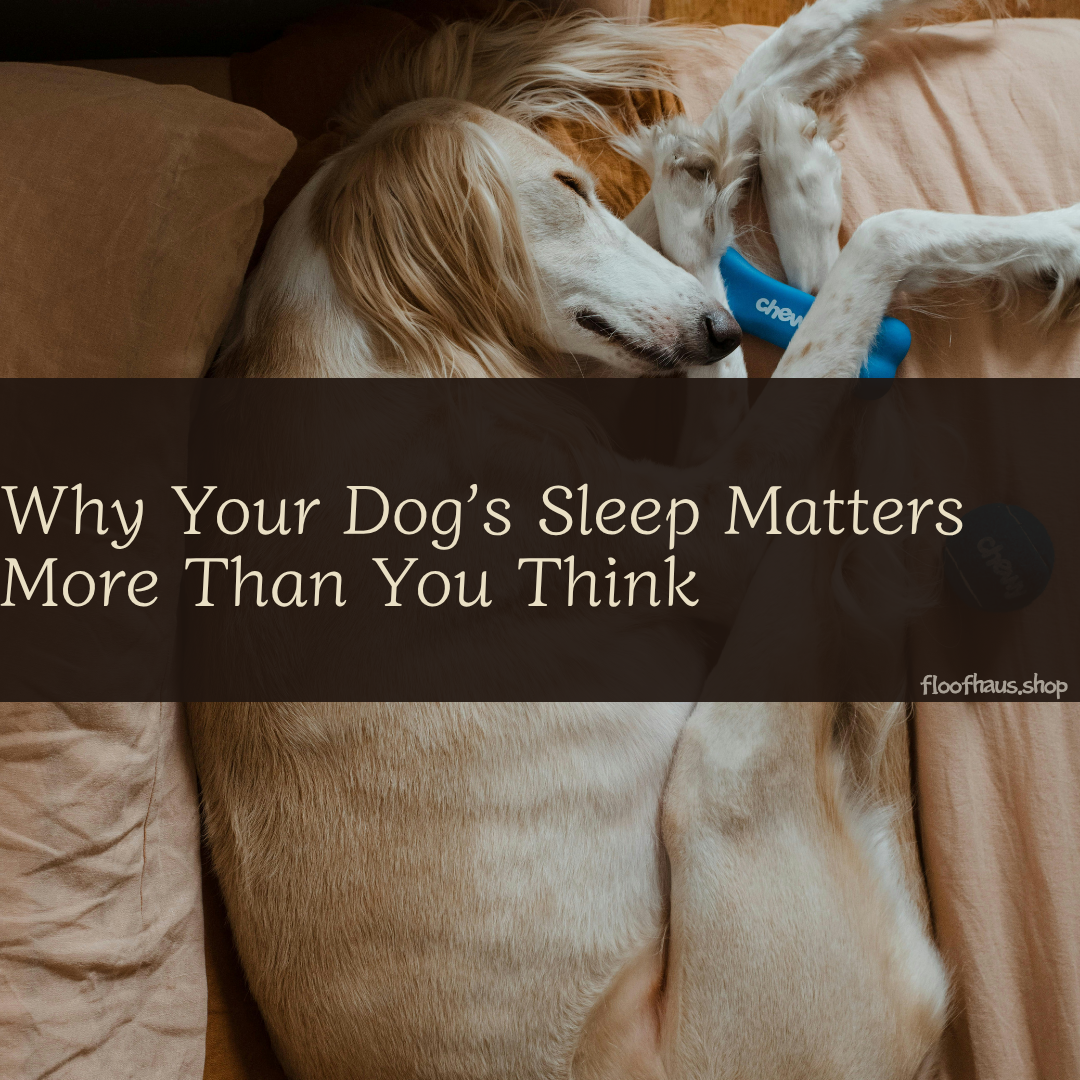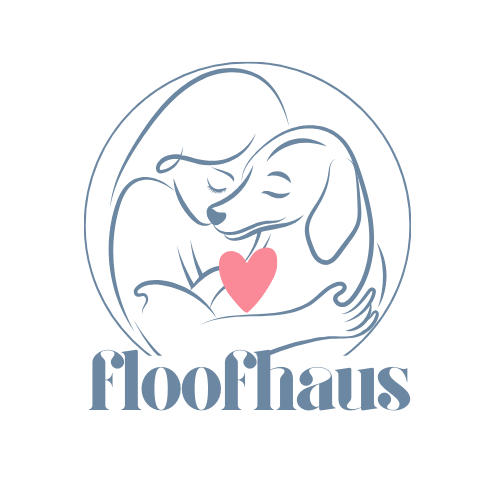
Why Your Dog’s Sleep Matters More Than You Think
Share

It’s no secret that dogs love to sleep. But did you know that dog sleep is one of the most important indicators of overall health and well-being? From puppies to seniors, sleep impacts your dog’s mood, memory, immune system, and even how well they respond to training.
Just like humans, dogs need proper sleep cycles to function at their best. But how much is enough? What’s “normal” sleep behavior? And how can you make sure your pup gets the rest they truly need?
Let’s take a closer look at what’s happening when your dog sleeps—and how to improve the quality of that sleep every day.
How Much Sleep Do Dogs Really Need?
On average, adult dogs sleep between 12 to 14 hours a day. Puppies, large breeds, and senior dogs may sleep even more—up to 18 or 20 hours. While this may sound like a lot, it’s completely normal.
Dog sleep isn’t just about energy recovery. It’s also when the brain processes information, the immune system recharges, and muscles rebuild. If your dog isn’t sleeping enough, you may start to notice changes in their behavior or health.
For example, a sleep-deprived dog might become irritable, overly vocal, or anxious. Long-term sleep problems can even weaken their immune response or worsen joint pain.
The Science of Dog Sleep Cycles
Dogs don’t sleep the same way we do. Instead of one long stretch at night, dog sleep is polyphasic—meaning it happens in short bursts throughout the day. You’ve probably seen your dog nap after breakfast, snooze again in the afternoon, and curl up for the night after dinner.
Most of this sleep is in a light, restful state. Only about 10% of a dog’s rest is spent in deep REM sleep—the stage linked to dreaming, memory consolidation, and healing. That’s why creating a peaceful environment is so important. Every minute of deep sleep counts.
How to Create the Ideal Dog Sleep Environment
One of the best things you can do for your dog is to make sure they have a dedicated sleep space. This could be a crate, a corner bed, or a soft mat in a quiet room.
floofhaus recommends choosing a bed that supports your dog’s body type and age. Orthopedic foam is great for seniors, while breathable materials are better for hot sleepers. Washable covers also help cut down on allergens, odors, and general discomfort.
Lighting matters, too. Keep the sleep space dim at night, and try not to interrupt their naps during the day. Dogs thrive on routine, so try to feed, walk, and settle down around the same times each day.
Signs Your Dog Isn’t Sleeping Well
Most dogs are excellent nappers. But if your dog is waking up often, pacing at night, or refusing to rest in their usual spot, something may be wrong.
Common causes of poor dog sleep include:
-
Noise sensitivity (especially fireworks or construction)
-
Pain from arthritis or injuries
-
Anxiety, including separation stress
-
Poor diet or irregular feeding schedules
-
Discomfort due to temperature or bedding
Keep an eye on sudden changes. If your dog’s sleep patterns shift dramatically or they seem exhausted during the day, talk to your vet. It could signal an underlying health issue like hypothyroidism, dementia, or sleep apnea.
The Link Between Dog Sleep and Behavior
Dog sleep isn’t just about rest—it’s also tied to mood and behavior. Well-rested dogs are easier to train, more focused during walks, and less reactive to everyday triggers.
Studies show that dogs consolidate learned tasks during sleep, just like humans do. That means your pup’s ability to sit, stay, or come when called actually improves after a good nap!
On the flip side, sleep-deprived dogs may act out, bark more, or show signs of anxiety. If your dog’s behavior has changed recently, poor sleep might be part of the problem.
How to Support Healthy Dog Sleep at Every Age
Just like people, your dog’s sleep needs change over time.
-
Puppies need a lot of sleep to support rapid growth. Give them quiet time between play sessions and avoid overstimulation in the evening.
-
Adult dogs benefit from a structured routine. Predictable feeding, exercise, and rest all support better sleep.
-
Senior dogs may struggle with joint pain or cognitive decline. Choose orthopedic bedding and keep their space calm and clutter-free.
No matter their age, all dogs benefit from consistent sleep habits. That includes keeping late-night snacks to a minimum and turning off loud devices around bedtime.
Support Your Dog’s Sleep with floofhaus
At floofhaus, we know good sleep equals a happy pup. That’s why we design bedding and calming accessories with real dogs (and their humans) in mind. Whether you’re shopping for a teething puppy or a grey-muzzled senior, we’ve got sleep solutions tailored to your pet’s needs.
Explore our latest sleep collection at floofhaus.shop and give your dog the rest they deserve.
Conclusion
Dog sleep is more than a daily habit—it’s the foundation of your pet’s health and happiness. By understanding how dogs sleep and making small adjustments at home, you can help your furry friend live a longer, more comfortable life.
After all, a well-rested dog is a well-loved dog—and that’s what being a great pet parent is all about.
Sources
- American Kennel Club – https://www.akc.org/expert-advice/health/why-do-dogs-sleep-so-much/
- PetMD – https://www.petmd.com/dog/general-health/why-do-dogs-sleep-so-much
VCA Animal Hospitals – https://vcahospitals.com/know-your-pet/senior-dog-care - Sleep Foundation – https://www.sleepfoundation.org/animals-and-sleep/how-much-do-dogs-sleep
- Cornell University College of Veterinary Medicine – https://www.vet.cornell.edu
